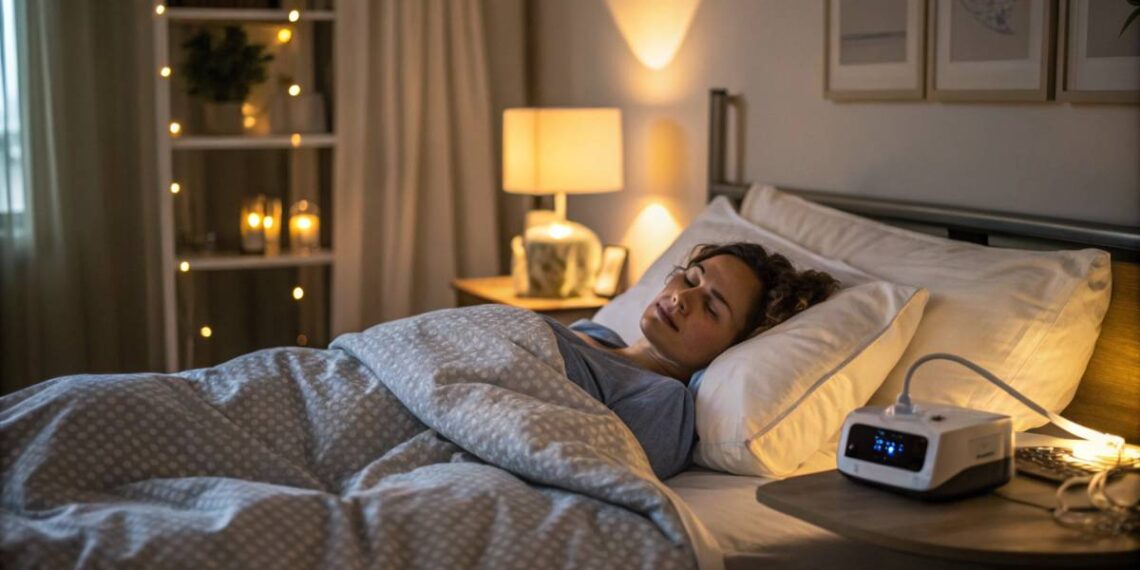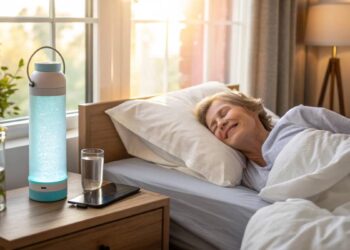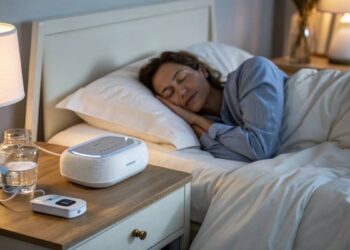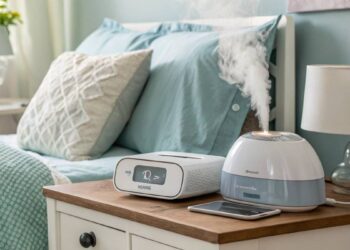Struggling to catch those elusive Z’s? You’re not alone. Sleep apnea silently disrupts millions of lives, turning restful nights into restless battles. Imagine waking up refreshed, breathing easy, and embracing each day with energy. This article dives deep into effective solutions, from trusted CPAP therapies to innovative surgical options, empowering you to reclaim your sleep and enhance your well-being. Let’s unravel the mysteries of sleep apnea and pave the way to uninterrupted, rejuvenating slumber.
Key Takeaways
- Understanding Sleep Apnea: Differentiates between obstructive, central, and complex sleep apnea, highlighting their causes and symptoms.
- Treatment Options: Explores CPAP therapy, oral appliances, and surgical interventions like UPPP, MMA, and Inspire Therapy.
- Surgery Success Rates: Compares the effectiveness of various surgical treatments over 1 and 5-year periods.
- Factors Influencing Outcomes: Discusses how severity, patient health, and surgeon expertise impact treatment success.
- Post-Surgery Care: Outlines essential steps for recovery to ensure optimal results.
- Long-Term Health Benefits: Emphasizes the importance of treating sleep apnea to prevent serious health issues.
Understanding Sleep Apnea
What is Sleep Apnea?
Sleep apnea’s like that frenemy you don’t even know is around. It sneaks up on you by messing with your breathing at night. Whether it’s a blocked throat (obstructive) or your brain forgetting to send the memo to breathe (central), it can be a bothersome companion. Most folks with sleep apnea might not even notice they’re waking up over and over while they dream away.
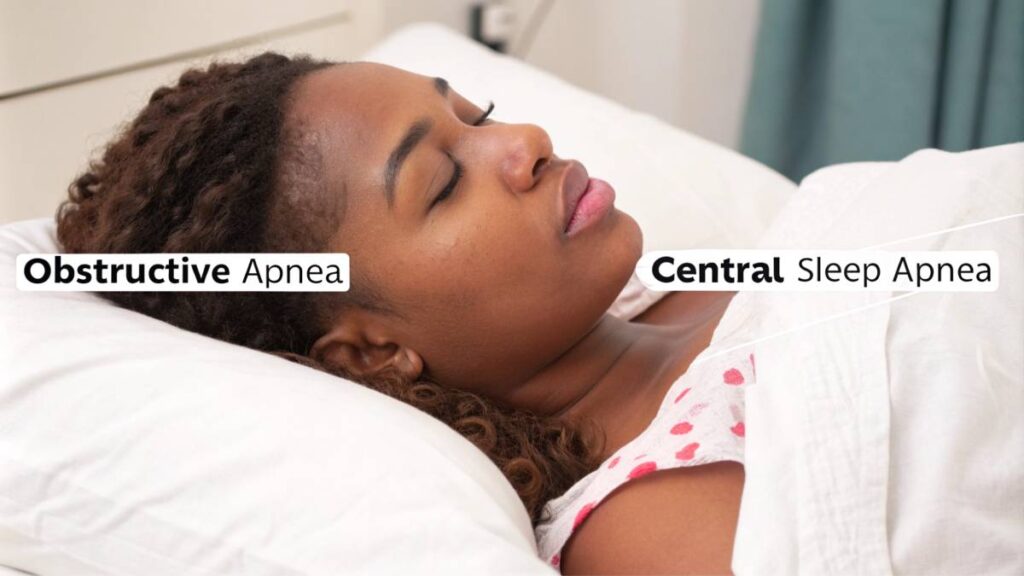
Now, who’s likely to get cozy with sleep apnea? It doesn’t play favorites, but it’s more common in people carrying a bit more weight, those who have hit the big 4-0, and folks with some unique features like swollen tonsils or a crooked nose bridge. If you find yourself snoring like a freight train, gasping for air, or feeling like a zombie during the day, you might want to check out our piece on sleep apnea symptoms.
| Type of Sleep Apnea | Description |
|---|---|
| Obstructive Sleep Apnea | Upper airway throws up a blockade. |
| Central Sleep Apnea | Brain forgets to hit the ‘breathe’ button. |
| Complex Sleep Apnea | A tricky mix of obstructive and central apnea. |
Impact of Sleep Apnea on Health
Ignoring sleep apnea is like dodging chores—it catches up with you. It’s not just annoying; it can mess with your health in a serious way. We’re talking high blood pressure, heart issues, and cranking up your chances of a stroke or getting diabetes. Everyday life can turn into a circus act of brain fog, mood changes, and just feeling run down.
| Health Effect | Description |
|---|---|
| High Blood Pressure | Oxygen drops cause your pressure to go up. |
| Heart Problems | Increases the risk of heart issues and failure. |
| Stroke Risk | Breathing gaps could lead to a higher chance of strokes. |
| Mood Disturbances | Constant tiredness might drag your mood down. |
Getting a handle on sleep apnea isn’t just about better sleep; it’s key to dodging these health hurdles. While CPAP machines are the norm, they’re not the only game in town. Some might find surgery a worthwhile shot if CPAP isn’t their thing. Curious about checking for sleep apnea without leaving your couch? Consider a home sleep apnea test as your first step.
Treatment Options for Sleep Apnea
Dealing with sleep apnea comes with various strategies to ease symptoms and boost your snooze game. The big players here are CPAP therapy, those nifty oral gadgets, and even going under the knife if needed.
“The right sleep apnea treatment can transform not just your nights, but your entire life.” – Dr. Sarah Thompson, Sleep Specialist
CPAP Therapy
CPAP, or Continuous Positive Airway Pressure, is the go-to for sleep apnea warriors. This gizmo sends a steady breeze through a mask to keep your breathing passage clear while catching z’s.
It’s a champ for moderate to severe cases of obstructive sleep apnea. Folks using CPAP machines often report less snoring that could wake the dead and stay awake during boring meetings.
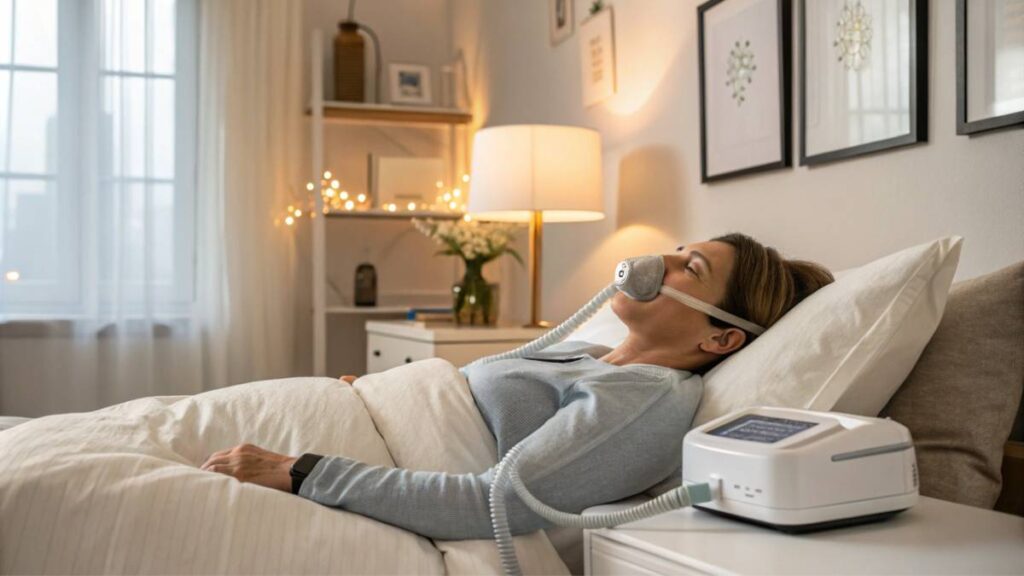
How CPAP Stacks Up
| Severity of Sleep Apnea | Success Rate (%) |
|---|---|
| Mild | 60 – 70 |
| Moderate | 70 – 80 |
| Severe | 80 – 90 |
For those interested in ditching the CPAP, checking out alternatives to CPAP might be worthwhile.
Oral Appliances
Oral gadgets are a no-fuss option for handling mild to moderate sleep apnea. Custom-made to snugly fit your mouth, they nudge your jaw and tongue into position to keep that airway open.
Perfect for the traveler or anyone who finds CPAP a bit of a drama, these are light, portable, and plain simple to use.
Oral Appliance Outcomes
| Severity of Sleep Apnea | Success Rate (%) |
|---|---|
| Mild | 50 – 60 |
| Moderate | 60 – 70 |
| Severe | 40 – 50 |
These dental dudes are great for those aiming for a laid-back fix. Plus, they can team up with other treatments for a one-two punch.
Sleep Apnea Surgery
When gadgets and gizmos fall short, surgery might step in. Targeted at relieving obstructive sleep apnea due to physical quirks like big tonsils or a droopy uvula, surgery’s the heavyweight of treatment options.
Different surgeries tackle different issues, but all aim to clear the runway for better airflow.
Types of Surgery
| Surgical Procedure | What’s It Do? |
|---|---|
| UPPP (Uvulopalatopharyngoplasty) | Clears out extra throat tissue to open the airway. |
| MMA (Maxillomandibular Advancement) | Alters jaw position to enhance air access. |
| Inspire Therapy | Installs a gadget to nudge airway muscles during sleep. |
Surgery has its ups and downs based on lots of things. Peek at the section on factors affecting surgery success rates to get the scoop.
Knowing what’s on the treatment menu lets those wrestling with sleep apnea make savvy calls. Smart picks help turn restless nights into peaceful slumber and perk up overall well-being.
Types of Sleep Apnea Surgeries
Getting a grip on the different surgeries for sleep apnea can guide folks in picking the right treatment. We’ll take a peek at three popular ones: UPPP (Uvulopalatopharyngoplasty), MMA (Maxillomandibular Advancement), and Inspire Therapy. Each has its own way of tackling the problem with varying success.
UPPP (Uvulopalatopharyngoplasty)
UPPP is all about clearing up the throat. During this shindig, they trim down extra tissue in the uvula, soft palate, and sometimes those tonsils get the boot, opening up the airway. The goal? Muzzle that snoring and help you breathe easier when you’re snoozing.
| UPPP Effectiveness | Percentage |
|---|---|
| Big Win | 50-75% |
| Small Win | 15-30% |
But here’s the kicker: how well UPPP works can vary. Some folks report major improvements, while for others, it’s a swing and a miss.
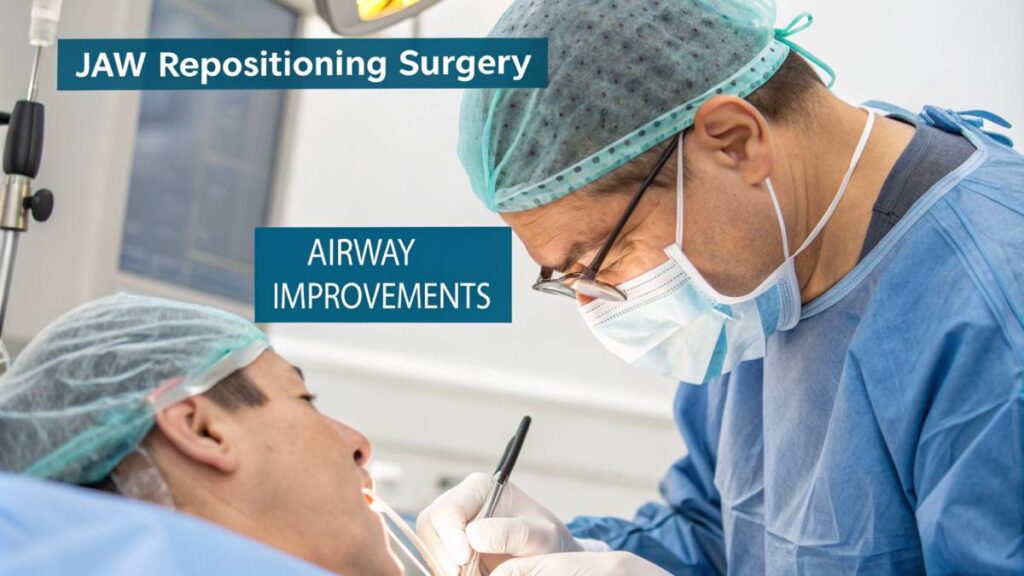
MMA (Maxillomandibular Advancement)
MMA is a heavyweight contender, shifting the upper and lower jaws to give more room for air. It’s especially handy for those battling severe obstructive sleep apnea or if a jaw misalignment’s the culprit.
| MMA Effectiveness | Percentage |
|---|---|
| Big Win | 80-90% |
| Small Win | 10-20% |
MMA has a pretty solid track record, more than UPPP, but it’s a bigger deal surgery-wise and you might be out of action for longer while recovering.
Inspire Therapy
Inspire Therapy is the new kid on the block for those who can’t hack CPAP machines. It’s all about fitting a nifty device that nudges the hypoglossal nerve (yep, the one driving tongue movement), keeping airways clear during slumber.
| Inspire Therapy Effectiveness | Percentage |
|---|---|
| Big Win | 70-80% |
| Small Win | 10-20% |
Inspire is less of a headache than more traditional fixes and has been showing good vibes for folks who’ve struck out with other treatments. It’s high-tech meets surgery to help beat sleep apnea.
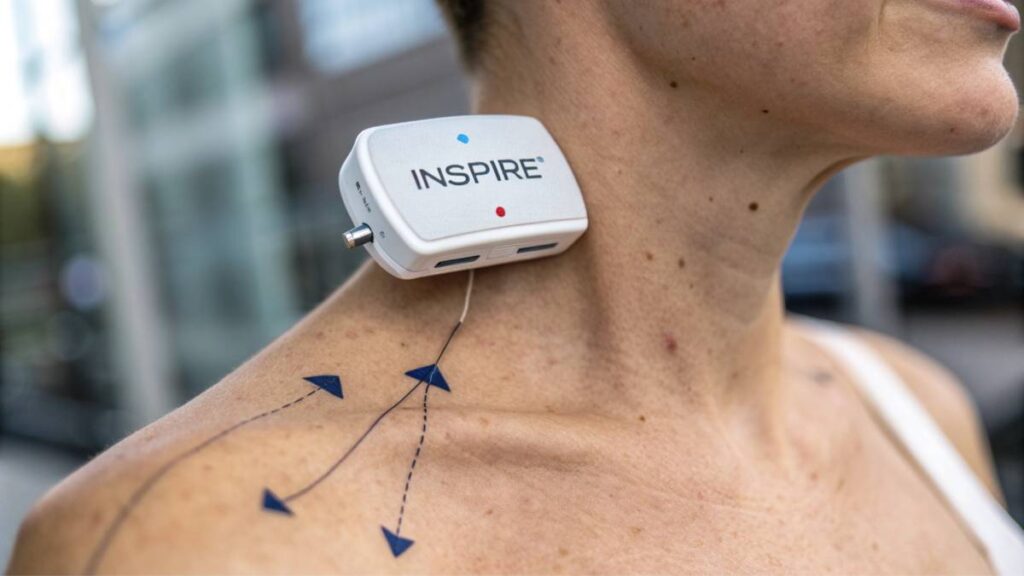
With each surgery comes its perks and things to weigh up. Surgery isn’t a one-size-fits-all caper, so having a chinwag with a doc is key to figuring out what suits you best. Want to geek out more on sleep apnea and its telltale signs? Check our article on sleep apnea symptoms.
Factors Affecting Surgery Success Rates
Betting on surgery to cure sleep apnea isn’t as clear-cut as placing your chips on red or black. Plenty gets in the way before you can sleep easy, and several key elements determine how well your snooze-time operation goes.
Severity of Sleep Apnea
Think of sleep apnea like a storm, ranging from a light drizzle to a full-blown thunderstorm. The rougher the storm (or the worse the apnea), the more you might need some serious gear—or in this case, surgery. If your condition falls in the mild category, there’s a better shot the surgery will hit the mark.
| Severity Level | AHI Score Range | Likely Success Rate (%) |
|---|---|---|
| Mild | 5 – 15 | 70 – 85 |
| Moderate | 15 – 30 | 60 – 75 |
| Severe | Above 30 | 50 – 65 |
Getting poked and prodded for an AHI score isn’t anybody’s idea of a good time, but it beats sleepless nights. If you’re curious about what those scores really mean anyhow, take a gander at our article on AHI score meaning.
Patient’s Overall Health
Your body is full of mystery and charm, and like a tough jigsaw puzzle, each piece plays a part in how you bounce back from surgery. Whether it’s packing a few extra pounds, dealing with those pesky heart hiccups, or facing life with age badges, these factors could throw a wrench in your recovery.
| Health Factor | Impact on Success Rate |
|---|---|
| Obesity | More pounds, fewer smiles; shedding weight could be a game changer |
| Chronic conditions | Think of them like banana peels—slippery for success |
| Age | Like fine wine, some things are better with age… but not always success rates here |
Dropping a few sizes might just lighten your load on more than one front. Chew on more info in our piece on does weight loss help sleep apnea.
Surgeon’s Experience and Skill
Ever consider how much trust we put into folks with sharp objects? When it comes to sleep apnea surgery, the surgeon’s seasoned touch matters more than a gourmet chef’s whisk.
| Experience Level | Potential Impact on Success Rate (%) |
|---|---|
| Less than 5 years | 50 – 60 |
| 5 – 10 years | 60 – 75 |
| More than 10 years | 75 – 90 |
Finding someone with the chops is like picking a ripened avocado—tricky, but oh so worth it. Before you make the dive, make sure to quiz your doc about their credentials and see if they’ve done this kind of work with their eyes closed (figuratively speaking, of course).
So, there you have it. From the twists and turns of your health to the skill of your surgical savior, knowing these variables can help guide you down the sleepy path of surgery success. Need more wisdom on the matter? Jump into our stories on sleep apnea symptoms and explore what causes sleep apnea.
Research on Sleep Apnea Surgery Success Rates
If you’re thinkin’ about taking the plunge into the world of sleep apnea surgeries, grab yourself a good cup of joe and settle in. This stuff isn’t rocket science, but it’s worth a gander to know exactly what you’re getting into. It’s all about knowing which procedures actually do the trick. And yep, research is the knight in shining armor here, shedding light on which surgeries might actually get you more Z’s and less wheeze.
Studies and Findings
Loads of brainiac researchers have poked and prodded at sleep apnea surgeries, trying to figure out what works, and what just leaves you snoring on. They looked at how folks felt after the knife, seeing if life was all sunshine and rainbows with fewer midnight awakenings.
Here’s the good, the bad, and the downright ugly from a bunch of studies on these surgical success stories:
| Surgery Type | Success Rate (%) | Study Reference |
|---|---|---|
| UPPP (Uvulopalatopharyngoplasty) | 50 – 70 | A stack of retrospective research |
| MMA (Maxillomandibular Advancement) | 70 – 90 | In-depth clinical check-ups |
| Inspire Therapy | 67 – 90 | Tested through randomized trials |
So, what’s cooking? Well, UPPP’s success rates sorta lag behind, while MMA and Inspire Therapy are making bigger waves in the improvement department.
Long-Term Success Rates
It’s one thing to fix the problem now, but folks are in for the long haul—no one wants to face the music again in a year or two. So, let’s chat about what’s what when it comes to the lasting power of these sleep apnea snip-and-fix jobs.
| Surgery Type | 1-Year Success Rate (%) | 5-Year Success Rate (%) |
|---|---|---|
| UPPP | 60 – 80 | 30 – 50 |
| MMA | 80 – 90 | 60 – 75 |
| Inspire Therapy | 80 – 90 | 60 – 80 |
A lot of people find solid relief at first, but some might need a little extra help down the line. It’s worth yappin’ with your doc about these stats to get the scoop on what your snooze future might hold. And hey, if you’re curious about all the fine details on what sleep apnea looks like symptom-wise, mosey on over to have a peek at sleep apnea symptoms.
Going through this research? It’s like getting a little shield of wisdom before heading into those big chats with your doctor. The more you know, the better you can steer the conversation and find a path that’ll hopefully lead you to peaceful nights. And c’mon, who doesn’t want a bit of that in their life?
Risks and Considerations
Thinking about sleep apnea surgery? It’s wise to get the lowdown on both the risks and the TLC you’ll need afterward. Being informed can make the ride smoother on your road to better Z’s.
Potential Complications
No surgery is a walk in the park, including sleep apnea procedures. Here are a few common bumps in the road:
| Complication | What Could Happen |
|---|---|
| Infection | Your body’s version of saying “no welcome mat” at the surgery spot |
| Bleeding | Might bleed during or after things wrap up |
| Difficulty Swallowing | Could find swallowing more like a chore, temporarily or for good |
| Changes in Voice | Your new post-surgery throat might remix your vocal vibe |
| Anesthesia Risks | Everything from nausea to full-on allergy surprises during the snooze |
Make sure to chat with your doc about these hiccups. Knowing what could happen means you won’t be blindsided and can have fair expectations for bouncing back.
Post-Surgery Care
After the docs have done their thing, taking good care of yourself is the name of the game. Here’s how to help your body bounce back like a champ:
- Rest Up: Let healing be your number one job—grab those Z’s.
- Check-Ins: Be a regular at your follow-up visits; it’s where docs see how you’re doing.
- Med Time: Stick to your med routine like glue for dealing with pain and germs.
- Soft Nibbles: Kick off with easy foods, steering clear of anything that’ll bicker with your throat.
- Take it Easy: Put straining on pause. Gym or heavy lifting? Save it for later.

Looking after yourself after surgery can seriously up your success game. Curious about how sleep apnea impacts heart health? Swing by our page on sleep apnea heart problems.
“Post-operative care is crucial; it ensures the success of the surgery and the return to a healthier sleep pattern.” – Dr. Michael Lee, ENT Surgeon
Getting the scoop on risks and post-op care means you’re more likely to make decisions that fit you just right.
Making an Informed Decision
Thinking about surgery for sleep apnea? It’s a big deal, so getting all the information straight and talking to the right people is a must. Chatting with doctors and checking in on your own health can really help you get a grip on what to expect.
Consultation with Healthcare Providers
Talking to your healthcare team is a key move when deciding if surgery for sleep apnea is the right call. The doctors, especially those who know their stuff about sleep problems or ear, nose, and throat (ENT) issues, can break down your options, surgery included. During your visit, have a chat about all your symptoms, any health hiccups you’ve had, and how you live day-to-day. This info lets your doctor guide you towards the best game plan for your needs.
Here are some things you might want to ask during your chat:
- What’s the surgery supposed to do for me?
- Will my sleep get better after the surgery?
- What are the risks of taking this step?
- What’s the plan after I get the surgery done?
Tackling these questions gives you a better idea of how surgery might help handle your sleep apnea.
Personal Health Assessment
Sizing up your own health is super important to see if sleep apnea surgery suits you. This usually means checking out:
- Your body mass index (BMI)
- How bad your sleep apnea is, like your AHI score meaning
- Any other health issues you might have, especially heart troubles related to sleep apnea
Here’s a quick look at how BMI connects with the seriousness of sleep apnea and what steps to think about:
| BMI Range | Severity Potential | Recommended Actions |
|---|---|---|
| Under 25 | Low | Keep an eye on symptoms, check in as needed |
| 25 – 30 | Moderate | Look into non-surgical fixes |
| 30 – 35 | High | Try lifestyle tweaks, talk to your doc |
| Over 35 | Very High | Surgery might be the way; shedding pounds could help (does weight loss help sleep apnea) |
Take stock of your daily habits, what you eat, and how often you move because these can all change how severe sleep apnea gets and how surgery will turn out. If you’re worried about your kid having sleep apnea, getting to know pediatric sleep apnea symptoms could be helpful.
Hooking up with healthcare pros and reflecting on your health puts you in the driver’s seat to make smart choices about sleep apnea surgery and its impact on your health and life quality.
Support and Lifestyle Changes
Coping with sleep apnea ain’t a walk in the park, that’s for sure. But, tweaking some habits and following up on supportive measures can really boost that shut-eye time and overall life goodness. So, let’s delve into staying on top of things and catching some quality zzz’s.
Keeping an Eye On Things
Don’t let sleep apnea just sneak by—track it like you would a Netflix marathon. Jotting down notes in a sleep diary about how long you’re snoozing and any hiccups during the night can reveal patterns over time. This info might be gold for your healthcare provider to tailor better treatments.
And hey, maybe think about those home sleep apnea tests. They’re like those sleep apps but for sleep conditions, checking out stuff like your heart rate and how well you’re breathing during the dreamscape. These details can clue you in on treatment effectiveness and what’s best in the long run.
| Keepin’ Tabs With | What’s It About |
|---|---|
| Sleep Diary | Note quality, weirdness in sleep. |
| Home Sleep Apnea Test | Get deets on heart, airflow, and more. |
Better Snooze Rules
Giving sleep apnea a good left hook means sprucing up your bedtime game. Here are some tips to help you snooze like a pro:
- Stick to Sleep Plans: Regularly hitting the sack at the same time can get that body clock ticking in rhythm.
- Mind Your Sleeping Position: Lying on your back ain’t your buddy if you have sleep apnea. Try snoozing on your side instead, and check out more on this in best sleep position for sleep apnea.
- Weight Watch: If the scale’s been sneering at you, shedding a few pounds might just lighten up those symptoms. Get the scoop over at does weight loss help sleep apnea.
- Set the Sleep Mood: Dim the lights, keep it cool, and hush the room for optimal snoozing conditions.
On top of all this, poking around for natural sleep apnea remedies might just add that extra oomph. By keeping tabs on your snooze and making these changes, you’re tackling sleep apnea head on like a champ!
Main Tips
- Maintain a Consistent Sleep Schedule: Go to bed and wake up at the same time daily to regulate your body’s internal clock.
- Optimize Your Sleep Environment: Keep your bedroom cool, dark, and quiet to promote uninterrupted sleep.
- Use CPAP Correctly: Ensure your CPAP machine is properly fitted and used consistently for maximum effectiveness.
- Consider Weight Management: Shedding excess weight can significantly reduce sleep apnea symptoms.
- Consult a Specialist: Seek professional advice to choose the treatment plan that best suits your condition and lifestyle.
Final Thoughts
Conquering sleep apnea is more than just improving sleep—it’s about reclaiming your health and vitality. Whether you opt for tried-and-true methods like CPAP or explore innovative surgical solutions, the key lies in informed decision-making and personalized care. Embrace a proactive approach by consulting with healthcare professionals, adhering to treatment plans, and making necessary lifestyle adjustments. Remember, restful nights pave the way for energized days, enhanced well-being, and a higher quality of life. Take the first step towards better sleep today and experience the transformative benefits of effective sleep apnea management.
Conclusion
Navigating the labyrinth of sleep apnea treatments can be daunting, but understanding your options is the first step toward restful nights and improved health. From the reliable effectiveness of CPAP machines to the promising outcomes of advanced surgical procedures like MMA and Inspire Therapy, each treatment offers unique benefits tailored to individual needs. Success rates vary based on factors such as the severity of apnea and the patient’s overall health, underscoring the importance of personalized medical advice. Post-surgery care plays a pivotal role in ensuring lasting relief, making adherence to recovery protocols essential. By weighing the pros and cons of each treatment and consulting with experienced healthcare providers, you can make informed decisions that align with your lifestyle and health goals. Embrace these strategies to overcome sleep apnea, enhance your quality of life, and wake up refreshed every morning.
Frequently Asked Questions
What is sleep apnea and how does it affect my health?
Sleep apnea is a disorder that causes breathing to repeatedly stop and start during sleep, leading to poor sleep quality and increased risks of heart disease, high blood pressure, and diabetes.
What are the different types of sleep apnea treatments available?
Treatments include CPAP therapy, oral appliances, and surgical options like UPPP, MMA, and Inspire Therapy, each tailored to the severity and type of sleep apnea.
How effective is CPAP therapy in treating sleep apnea?
CPAP therapy is highly effective for moderate to severe sleep apnea, with success rates ranging from 70-90%, significantly improving breathing and sleep quality.
What factors should I consider before opting for sleep apnea surgery?
Consider the severity of your condition, overall health, surgeon’s expertise, and potential risks and benefits to ensure the best possible outcome.
Can lifestyle changes help manage sleep apnea symptoms?
Yes, maintaining a healthy weight, sleeping position adjustments, and creating a conducive sleep environment can significantly alleviate sleep apnea symptoms.

